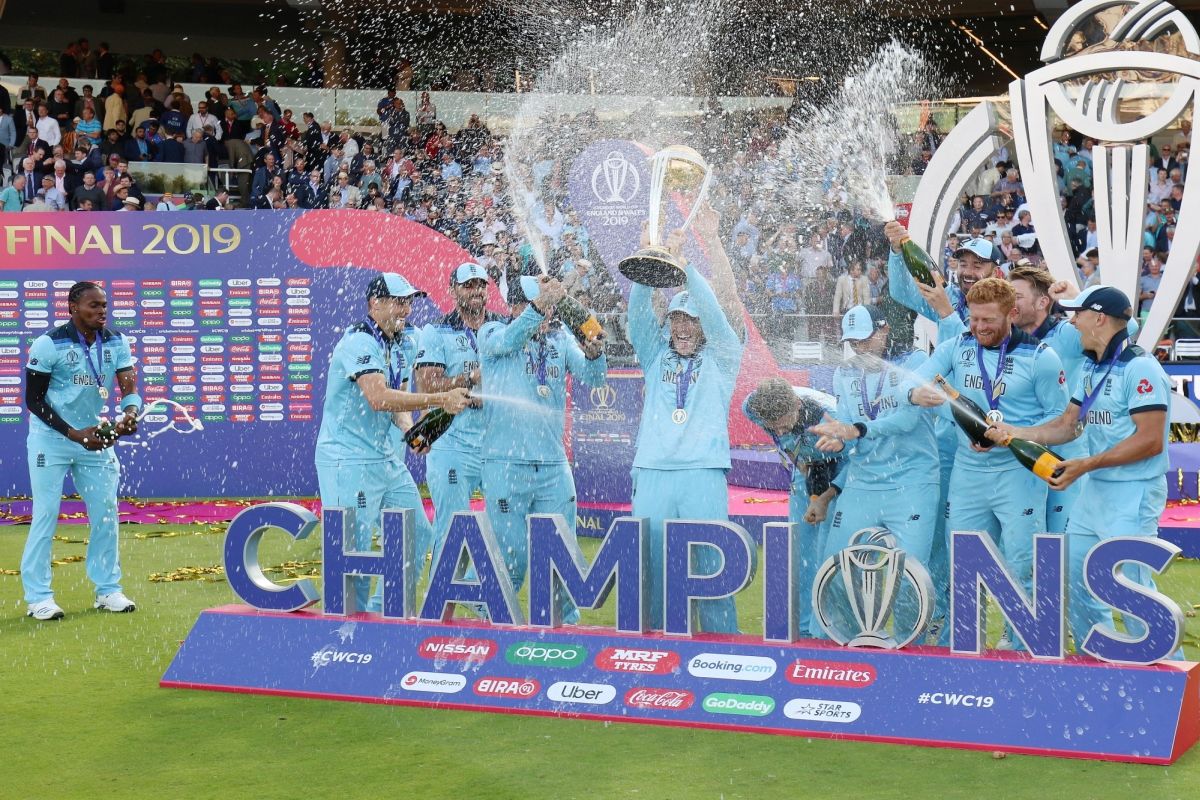The German word “Schadenfreude” captures the strangest of human emotions: feeling delight at another’s misfortune, and in reverse resenting someone’s success. Schadenfreude infiltrates us often, as in gloating at misfortunes of an uppity colleague or terrorist neighbour.
It appears more in gladiatorial sporting arenas, and in the disproportionate attention mainstream media gives to lucrative sports.
Advertisement
So too after the July 14 mind boggling World Cup cricket final – the gibbering hysteria of the last 12 balls, the winners’ delirium, the disappointment of the runners-up to global griping at tournament rules.
Media-whipped hype flogs raw emotions in the multi-billion dollar sporting industry, with misplaced jingoism often masquerading as patriotism. Schadenfreude negativity and overcooked national identity get excessively entangled in what merely are recreational sporting games.
Sporting heroes and excellence enthrall and inspire, but negative baggage has blighted international competitions since history. Circa 776 BC, the early Olympic Games became a political combat zone among Greek city states, with athletes from Sparta, Rhodes, Macedon and Thasos waging the earliest sporting wars in lieu of military wars.
The Olympics created as a tribute to Zeus, king of gods, and with leaf wreaths for winners, has morphed into the modern day commercialized version with challenges such as drug cheats, and the craving for Olympic gold.
Sporting stakes and melodramas increase with the global sports market worth $480-$620 billion, according to an A.T. Kearney study. That might be $1 trillion including the legal and illegal betting markets, and their sinister influence on sporting federations.
Whether the ICC, FIFA World Cup or IPL, frenzied hype feeds the excessive time, money and emotions invested over sporting outcomes.
For a start, end this nonsense about a “billion” hearts broken after India’s cricket World Cup semi-final exit; does every single person in India have no other work except to follow grown-up men chasing a leather ball? Leave alone debt-ridden farmers in Maharashtra contemplating suicide than scores, many people I encountered in recent weeks from the Himalayas to Mumbai have no clue or care whether India is playing a World Cup match or not. Editors had better forever flush out the absurd “one billion Indian cricket fans” mega myth.
Such mega myths whip up pseudo-nationalism or tribalism, which fuels the Schadenfreude running amuck. Seeing the vanquished suffer elicits ghoulish glee, and so media images capture pained, crestfallen, teary faces of the defeated – Schadenfreude unleashed, like some malignant beast from dungeons of the mind. And in reverse, we cannot bear the team we dislike winning.
Ironically, true champions in sport rarely exhibit negativity. Schadenfreude has no existence in the DNA of extraordinarily successful people in any walk of life. Negativity and quality cannot co-exist.
Overcoming the negativity of Schadenfreude needs the non-egoistic positivity of ‘mudita’. The ancient Pali language word ‘mudita’ describes the rare but most rewarding human quality: feeling happy at the success of others. Negativity and painful heartburn disappears when we let go the ego and share in the joy of any winner.
Nothing in sport or life happens by chance. That is Mother Nature’s rule, whatever the rules of a World Cup. The law of cause and effect gives exactly what is deserved, win, tie or loss.
Realistically, nothing happens to a nation’s status if a World Cup is won or lost. India winning the cricket World Cup in 1983 and 2011 became unforgettable events in my life, but it makes no difference to an Australian – just as Australia being five times World Cup winner makes no difference to me. But media marketers with billions of dollars at stake whip up emotions by hyping up national identity for sporting events, which in core essence merely forms another avenue of entertainment. Cricket addicts (like me) might indignantly seethe if serious cricket is compared to scripted cinema. But take an honest look, and the word “entertainment” entwines the two. Nobody watches a cricket match to gain enlightenment, just as nobody goes to the cinema as a citizenship duty. “Exciting”, “nail-biting thriller”, “enjoyable”, “highly entertaining” are part of the same vocabulary in a match report or movie review – and not at all a coincidence that national anthems are ridiculously sung both in cinema halls and cricket stadiums. Patriotism becomes part of the reel or real entertainment.
Since patriotism is more than standing up to the national anthem in Eden Gardens or an INOX, more concrete love for one’s country needs making sacrifices and serving fellow beings in more substantial ways than merely winning cricket or kabaddi games.
More than Olympic gold and World Cup wins, India will gain more respect worldwide with less filthy city streets, and if people have the shame to stop defecating by the railway tracks even as crowded trains pass by
A similar misplaced sense of honour pollutes the genuine love for sports. Winning lust passes as love for sports. And so we have roofs of our cricket stadiums blown off with noise when India does well, and the embarrassing dismayed silence when the opposition displays good skills. Genuine sports fans smilingly applaud excellence irrespective of the passport.
. Sporting emotions will cool and Schadenfreude scorched with measured perspective: enjoy, but don’t get carried away. Apply the positivity of mudita – of rejoicing in others’ success, to remove the negativity that ruins the peace of mind in life and the true joy of sport.











